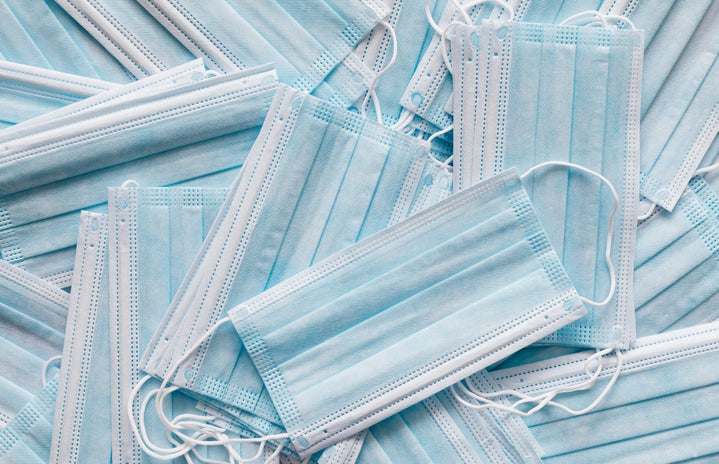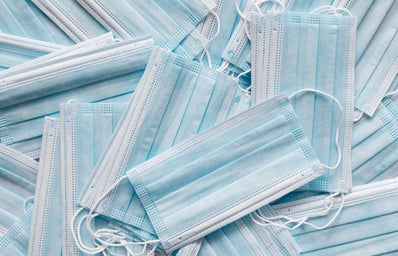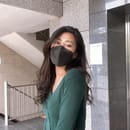The ongoing pandemic has ushered in many new norms for people all over the globe, and one change we’ve all had to make is regularly wearing a mask. The ever so important decision to wear a mask has unfortunately been causing mask-related acne, or “maskne.”
In conjunction with the stress from the pandemic and friction from the masks, maskne is caused by the warm air you’ll notice you make when you speak or breathe while wearing a mask. Unfortunately, this warm air gets trapped by the mask and creates a humid environment — the perfect setting for bacterial growth — that can cause acne and other skin concerns. Now, here’s how to treat it:
#1: Investing in the Right Cleanser
While washing your face at least twice a day to maintain clear skin is common knowledge, it can definitely be confusing. There are tons of cleansing products on the market, so choosing the right cleanser for your skin can be overwhelming. Generally, a good foam cleanser like the Shiseido Senka Perfect Whip Cleansing Foam is a great choice to regularly clean the skin. However, for those of you with more sensitive skin, I would recommend a more gentle and fragrance-free cleansing gel or balm. The top dermatology clinics in Seoul, the global epicenter for skincare innovation, would most likely recommend gel cleansers from Zeroid or dermArtlogy for people with sensitive skin.
Directly after cleansing, there are those who also enjoy taking the extra step to use an acid toner, which provides mild exfoliation that gets rid of dead skin cells and other debris. This can combat the texture and dark pimple scars that maskne gives your skin.

#2: Letting Your Skin Breathe
Take a makeup break! This is the most simple step, but it is still crucial for clearing your skin. I love my beauty routine and know that it’s super fun to get creative and express yourself with makeup. However, according to many experts, it is healthy to let your skin breathe and rest every once in a while. In fact, board-certified dermatologist Marnie Nussbaum said to PopSugar that “taking a break [from makeup] can brighten the skin and allow for better penetration of serums or creams.” So just keep in mind that when your skin is covered in layers of heavy makeup, especially in the humid environment under your mask, it can irritate your skin and clog your pores.
#3: Keeping Your Masks Clean
This may sound obvious, but be conscious of what you put on your face. In other words, make sure that the masks you’re using and exposing to your skin are clean. If you use reusable cotton masks, you should regularly wash them with detergent and then toss them in the dryer. But those who have single-use masks should be changing your masks frequently. This is not a waste of water or masks because cleaning or changing your masks is a matter of health and safety. It is a process that is very important in controlling the spread of COVID-19.
Remember that skincare is not just a fun form of self-care, but it is also a form of health care. Here’s to healthier skin for everyone!



